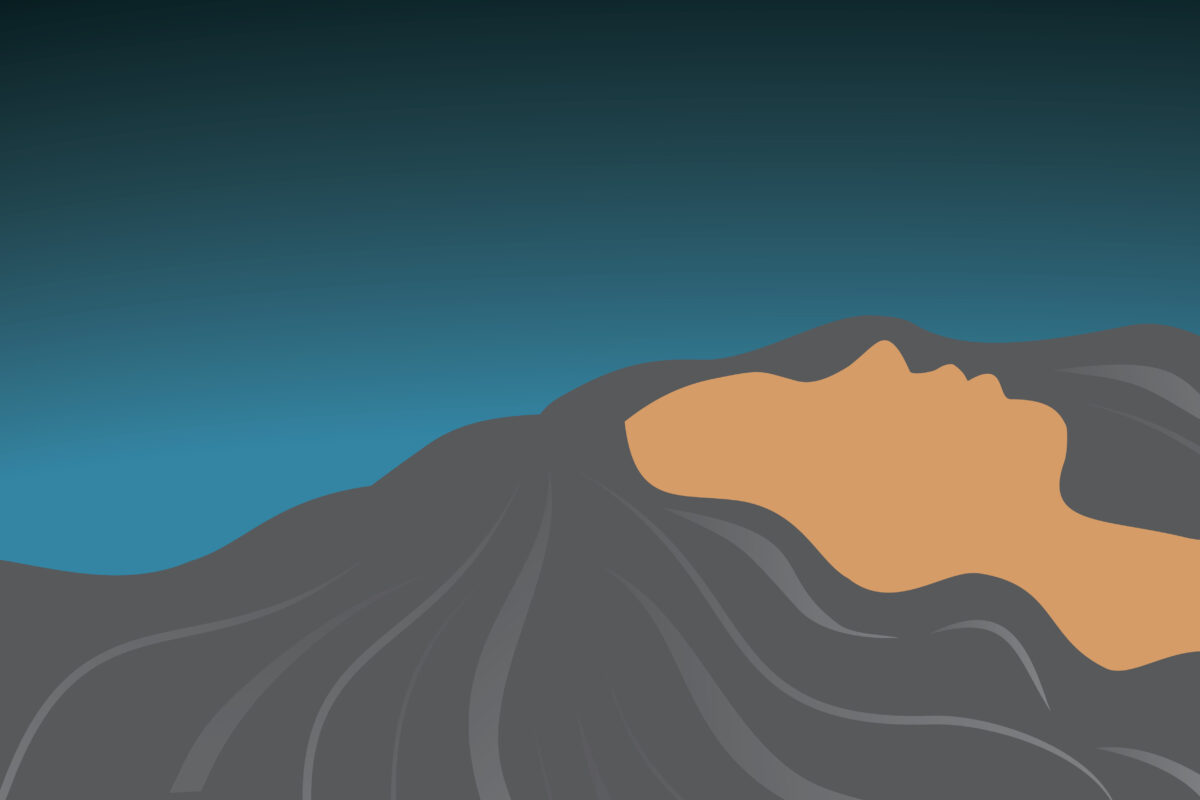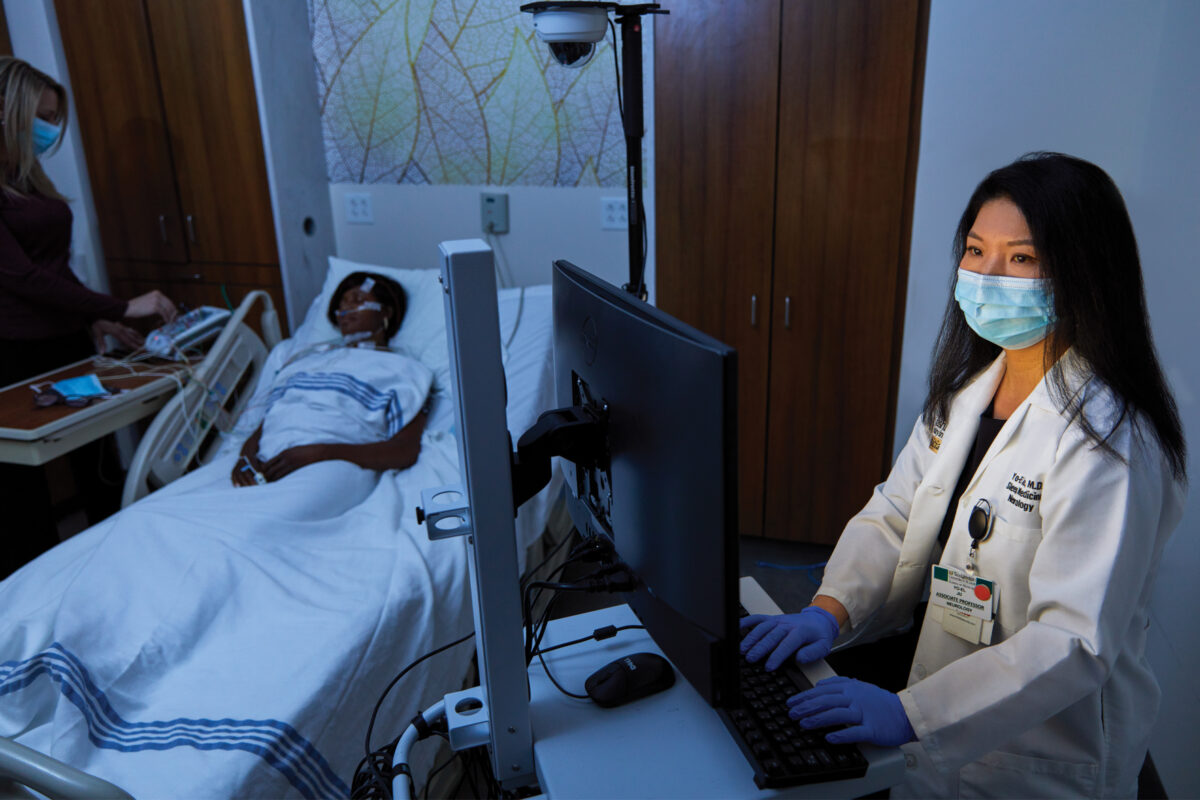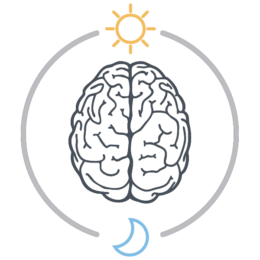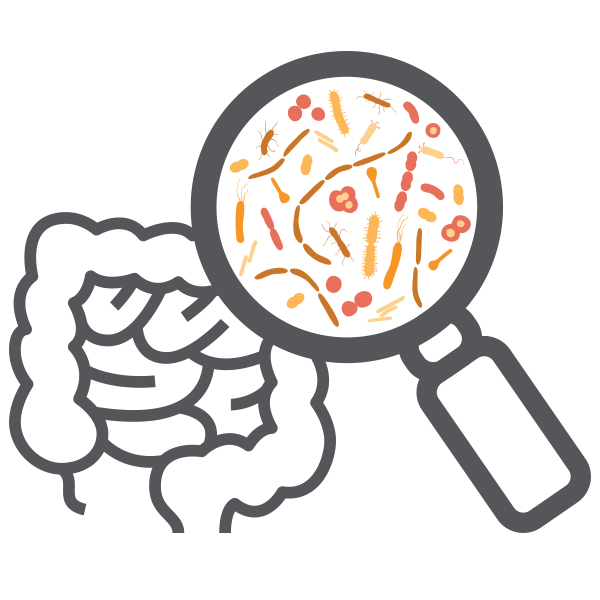
There’s nothing like a good night’s sleep. Apart from the pleasure of waking up refreshed and relaxed, sleep consolidates memories and enhances learning and creativity, which is why people grappling with a thorny problem are well advised to “sleep on it.” Sleep allows time for the brain’s housekeeping cells to clear away the molecular debris from the day so the brain can start the next day fresh.
And poor sleep doesn’t just make people grouchy; it has been linked to diabetes, heart disease, depression, Alzheimer’s and many other chronic conditions. WashU Medicine scientists are leaders in exploring sleep, from the fundamental question of why we do it in the first place, to how and why sleep disturbances undermine health and what can be done to address it.
Why do we sleep?
Step aside, lab rat. The humble fruit fly is sleep scientists’ lab animal of choice because its sleep habits are similar to ours, but its brain is just one-millionth the size. Studying fruit flies, neuroscientist Paul J. Shaw, PhD, has figured out the neurological basis of baffling phenomena such as why people sleep more after learning new things, and why it can sometimes be impossible to fall asleep despite tiredness. For flies with memory defects or Alzheimer’s-like brain changes, Shaw’s team has shown that improving sleep enhances cognitive performance — suggesting that people with certain neurological disorders may also benefit from improved sleep.
“The fly has so much to offer us. A lot of times we get inspiration for our fly experiments by talking to clinicians. Clinicians see complex problems in their patients and they come up with hypotheses that are difficult to test in people, but we can test in the fly. And more often than not, we succeed. We keep on getting things that match what people are finding in humans.”
— Paul J. Shaw, PhD
Losing sleep
It’s the old chicken-and-egg problem: Does chronic bad sleep injure the brain, or are sleep problems a symptom of damage? To neurologist Yo-El S. Ju, MD, the answer is probably both. A few years ago, she showed that sleep apnea — in which frequent breathing stoppages prevent deep sleep — worsens the signs of early Alzheimer’s disease, and that treating the breathing problems improves such signs. Now she co-leads an international study of REM sleep behavior disorder (RBD), a condition that often heralds dementia, Parkinson’s disease and other serious conditions. In RBD, the first sign of a neurological problem is a tendency to thrash about and act out dreams.

Sleep is the best medicine
To Brendan P. Lucey, MD, director of the Washington University Sleep Medicine Center, the goal is to help people sleep better. After his lab and others showed that poor sleep increases brain levels of two damaging Alzheimer’s proteins, he set out to determine whether good sleep could lower the levels of toxic proteins and thereby prevent or delay the onset of cognitive symptoms. He leads an ongoing phase 2 clinical trial of suvorexant, an FDA-approved insomnia drug. Preliminary results have been promising, hinting at the potential of sleep medications to slow or stop the progression of Alzheimer’s disease.
Out of sync

Our bodies are designed to follow the sun. Not just sleeping and waking, but digestion, immune responses and many other biological processes exhibit daily cycles of activity. When normal circadian rhythm is disrupted by jet lag, night shifts, odd sleep habits or disease, it can have far-reaching detrimental health effects. Neurologist Erik S. Musiek, MD, PhD, has shown that circadian disruptions accelerate the accumulation of damaging Alzheimer’s proteins in the brain. He has identified a gene that may be responsible for the link, pointing the way to a possible new approach to treating Alzheimer’s.
Do I have a sleep disorder?
- Habitual loud snoring, associated with pauses or snorting noises
- Frequent brief choking, awakening with gasping or shortness of breath
- Awakening with a headache
- Persistent sleepiness when awake or episodes of falling asleep unintentionally
- Persistent fatigue
- Persistent difficulty falling or staying asleep
- An urge to keep moving the legs at bedtime or a rhythmic twitching of the legs after falling asleep
- Unusual behaviors during sleep such as sleepwalking
WashU Medicine sleep experts treat sleep disorders with lifestyle changes, CPAP machines, implantable devices, medication, behavior therapy or surgical management.
Navigate the neurosciences
Continue exploring the extensive scope of neuroscience research conducted at WashU Medicine.
Published in the Winter 2023-24 issue













 Share
Share Tweet
Tweet Email
Email